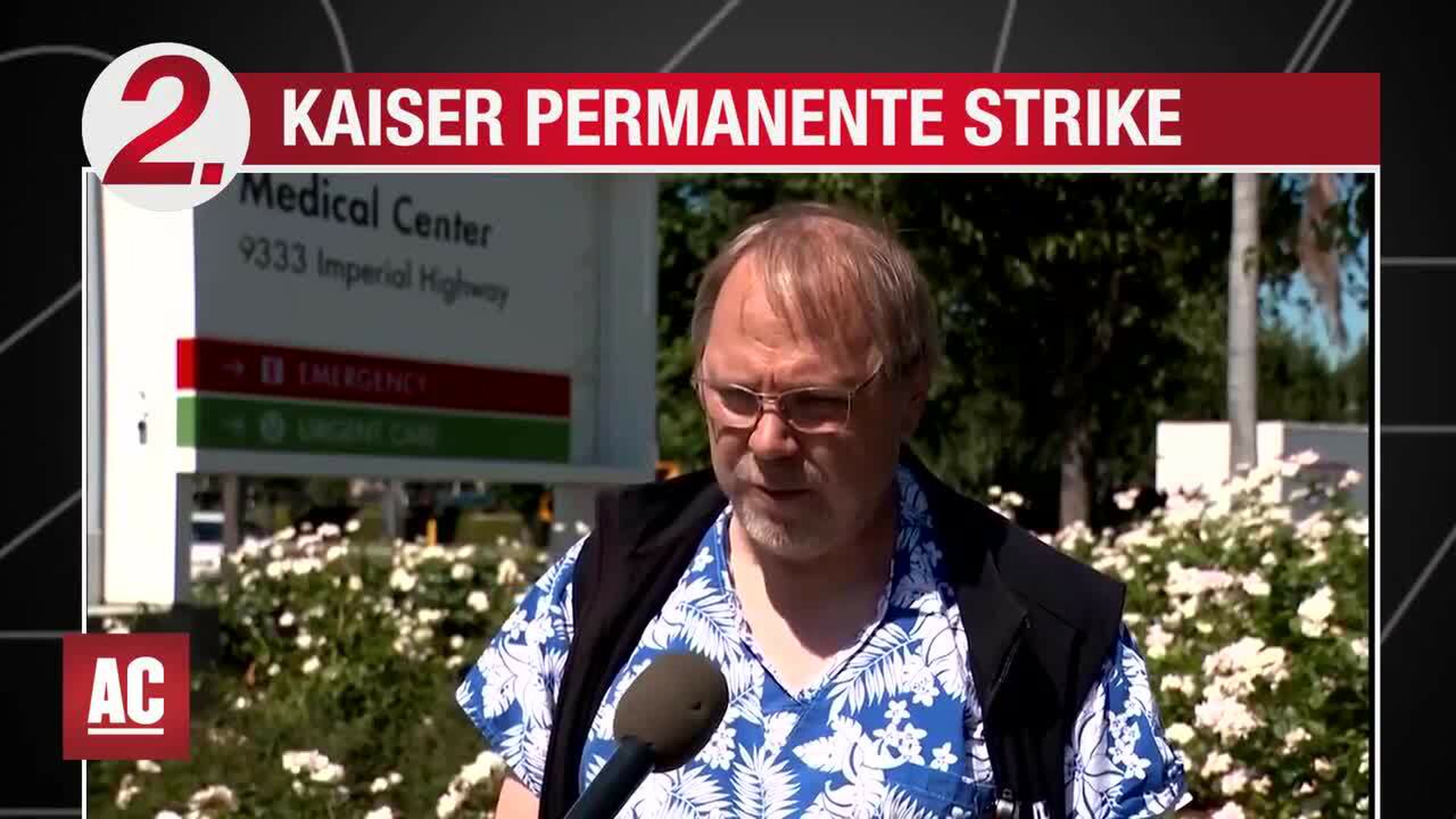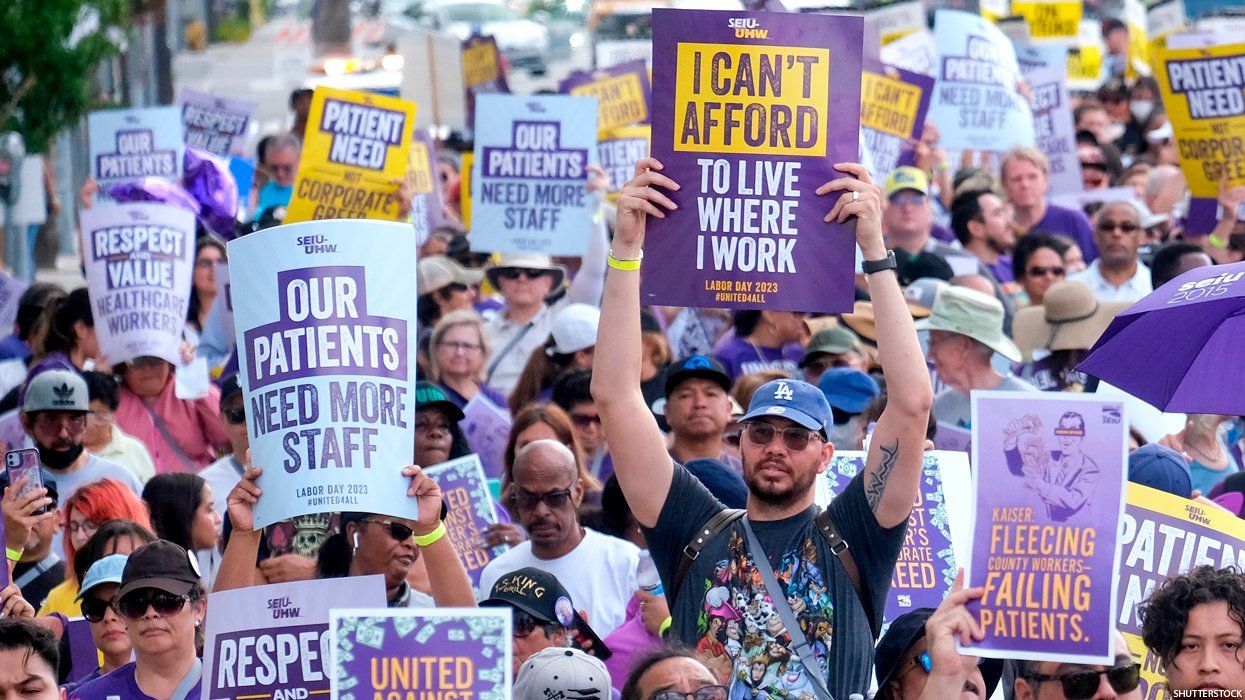More than 75,000 Kaiser Permanente workers walked out Wednesday, launching a strike against the nation's largest health care nonprofit.
Workers walked out at 6 a.m. local time. The unions behind the strike, the Coalition of Kaiser Permanente Unions, has described the work stoppage as the largest health care worker strike in United States history.
Kaiser Permanente workers strike

Picket lines will target Kaiser hospitals and medical offices in California, Colorado, Oregon, Virginia, the District of Columbia and Washington state. The striking workers include vocational nurses, emergency department technicians, radiology technicians, X-ray technicians, respiratory therapists, medical assistants, pharmacists, and hundreds of other positions.
The strike is only scheduled to last three days, until October 7. The unions said in a statement that the walkout is a protest against Kaiser executives’ “bad faith bargaining."
Kaiser Permanente operates 39 hospitals and over 600 medical offices across eight states and the District of Columbia. The organization estimates that it serves nearly 13 million patients. The organization reported a profit of $2 billion in the second quarter, generating $25 billion in revenue.
Kaiser said it has contingency plans to ensure patient care continues even during a strike.
The unions are demanding better pay and benefits, and that the organization addresses staffing shortages caused by the COVID-19 pandemic. In a statement Monday, Kaiser itself recognized that more than 5 million workers have recently left their health care jobs and burnout is at an all-time record high.
Caroline Lucas, executive director of the Coalition of Kaiser Permanente Unions, told CNBC that the shortage has led to unsafe working conditions and deteriorating patient care.
“We continue to have front-line health care workers who are burnt out and stretched to the max and leaving the industry,” she said. “We have folks getting injured on the job because they’re trying to do too much and see too many people and work too quickly. It’s not a sustainable situation.”
- Striking Actors Horrified by Studios' Dystopian AI Proposals ›
- 'Indiana Jones' Stunt Coordinator Lights Himself on Fire at SAG-AFTRA Strike ›
- Hollywood Actors Are on Strike — Here's What That Means ›
- UAW Launches Historic Strike Against All Big 3 Automakers ›
- Kaiser Permanente Strike Ends Tomorrow: What Comes Next ›
- Bernie Sanders: Nonprofit Hospitals Misuse Tax Exemptions ›
- Kaiser Permanente and Union Reach Tentative Deal ›


















































